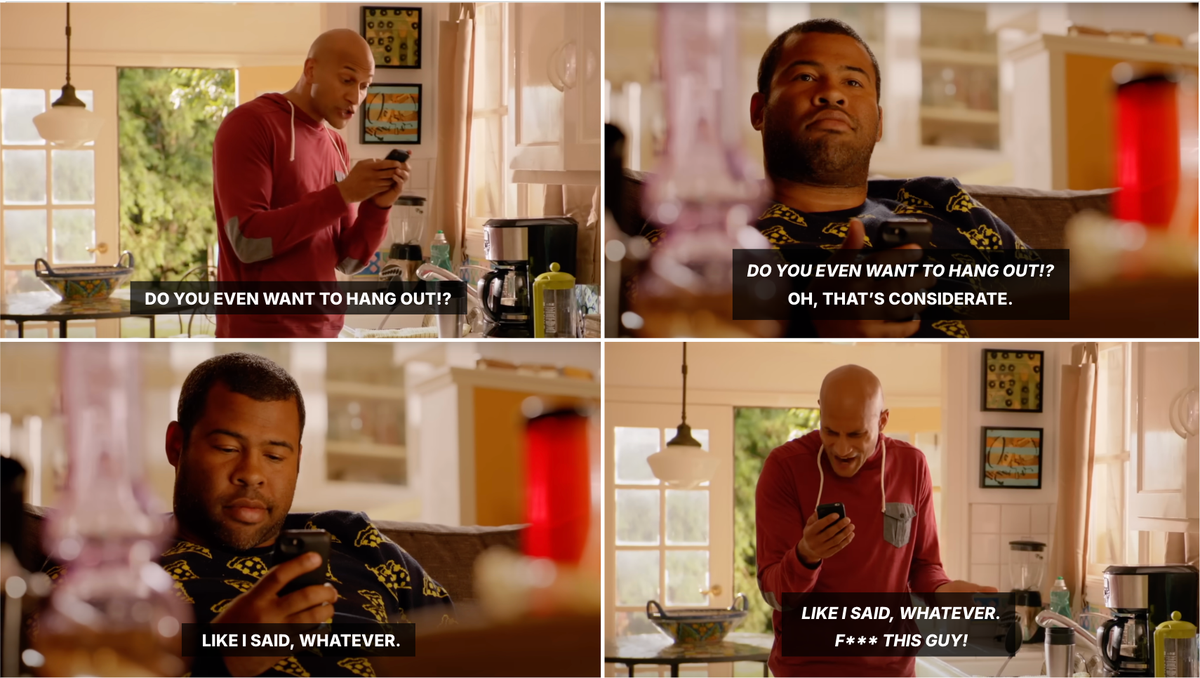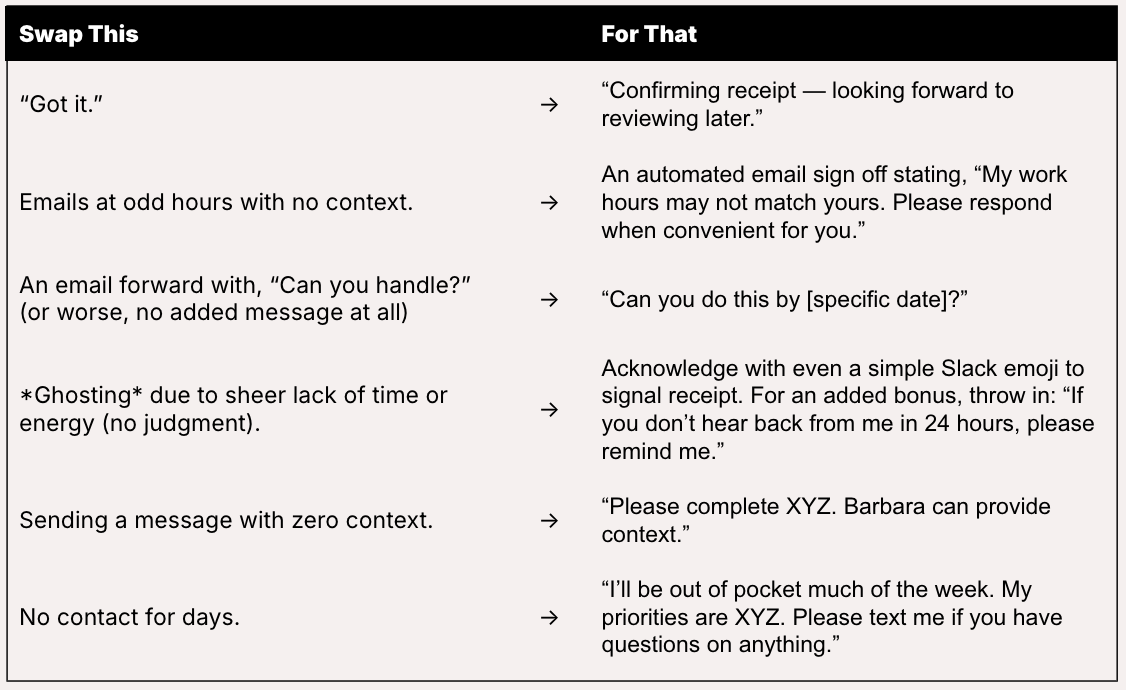Think before you type. The communication habit costing leaders.
30% of employees are frustrated by unclear leadership communication. Intentional communication can transform discouragement into trust, motivation, and lasting engagement.

Remember Key & Peele’s iconic “Text Message Confusion” skit? Two friends are in the same text conversation but walk away with entirely different interpretations? (If you haven’t seen it, add it to your to-do list — it’s worth it.)
While frustrating (and even funny) when it happens amongst friends, it’s easy to see how this can have a huge (and even negative) impact in other settings.
As more casual communication channels and habits take over corporate norms, it’s important to be on the lookout for these common pitfalls.
We call this phenomenon “The Texting Trap.”
Picture this: an employee spends days polishing a presentation. They finally send it off, and the manager replies, “Thanks” or “Got it.” The employee feels deflated, thinking their effort went unseen. The leader? They were simply confirming receipt and planning to review it later. Clear intent on one side, completely different interpretation on the other.
It’s these “small" moments that leaders still stumble on. The relentless grind of back-to-back meetings, overflowing inboxes, and constant notifications too often reduce leadership's communication from “good” to just “good enough.” And when that happens, motivation, engagement, and culture take the hit. A recent FlexOS report even shows 30% of employees are still frustrated by unclear communication from their bosses.
Now, there’s no need for a revolutionary framework or a 300-page HBR case study to solve this one. The remedy is deceptively simple: be explicit.
Being overly direct doesn’t take much extra effort, but it pays enormous dividends. Small shifts in phrasing can prevent misunderstandings, reduce stress, and boost employee satisfaction.
Here’s what that looks like in practice:

Keep this one principle in mind: assume nothing is obvious. Clarity is not just courteous — it’s strategic. And the impact? Transformational.



